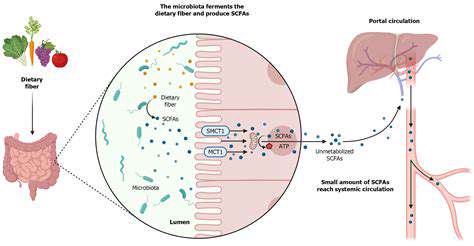Understanding Inflammation: Foods to Eat and Avoid
Anti-Inflammatory Powerhouses: Foods to Embrace
Turmeric: A Golden Spice for a Healthy Inflammation Response
Turmeric, a vibrant yellow spice, boasts potent anti-inflammatory properties largely due to its active compound, curcumin. This remarkable ingredient has been used for centuries in traditional medicine to alleviate pain and inflammation. Studies have shown curcumin's ability to reduce oxidative stress, a key contributor to inflammation, and modulate the immune response. Incorporating turmeric into your diet, whether through curries, sprinkled on vegetables, or as a supplement (always consult with a healthcare professional before taking supplements), can be a powerful step towards managing inflammation naturally.
The unique chemical composition of turmeric allows it to target various inflammatory pathways in the body, potentially reducing discomfort and promoting overall well-being. Its versatility in culinary applications makes it an easy addition to a wide range of dishes, from stir-fries to soups, and even smoothies, allowing you to readily enjoy its benefits as part of a balanced diet.
Fatty Fish: Omega-3s for a Balanced Inflammation Profile
Fatty fish, such as salmon, mackerel, and tuna, are rich in omega-3 fatty acids, essential fats crucial for maintaining a healthy inflammatory response. These polyunsaturated fats help regulate the production of inflammatory compounds in the body, mitigating the negative effects of chronic inflammation. The consistent consumption of fatty fish contributes to a balanced inflammatory profile, supporting overall health and potentially reducing the risk of various inflammatory diseases.
Berries: Antioxidant Powerhouses for Cellular Health
Berries, including blueberries, strawberries, and raspberries, are packed with potent antioxidants. These antioxidants neutralize harmful free radicals, which contribute to oxidative stress and inflammation. The high concentration of antioxidants in berries helps to protect cells from damage, supporting a healthy inflammatory response and promoting overall well-being. Their vibrant colors aren't just aesthetically pleasing; they signify the abundance of beneficial compounds that contribute to a healthier lifestyle.
Leafy Greens: Nutrient-Rich Allies in the Fight Against Inflammation
Leafy greens, such as spinach, kale, and collard greens, are nutritional powerhouses, providing a wealth of vitamins, minerals, and antioxidants. Their high fiber content aids digestion and promotes a healthy gut microbiome, which plays a vital role in modulating the immune response and reducing inflammation. These foods provide essential nutrients that support the body's natural ability to combat inflammation, making them an important part of an anti-inflammatory diet.
Ginger: A Root with Remarkable Anti-Inflammatory Properties
Ginger, a versatile root, has long been recognized for its anti-inflammatory and pain-relieving properties. Its active compounds help to reduce inflammation and potentially alleviate symptoms associated with various inflammatory conditions. The unique aroma and flavour of ginger make it a delicious addition to both savoury and sweet dishes, allowing you to enjoy its health benefits while enhancing your culinary experiences. Studies suggest that ginger may reduce inflammation in the digestive tract and other areas.
Citrus Fruits: Vitamin C for Immune Support and Inflammation Management
Citrus fruits, such as oranges, lemons, and grapefruits, are excellent sources of vitamin C, a vital nutrient for immune function and inflammation management. Vitamin C acts as an antioxidant, protecting cells from damage and contributing to a healthy inflammatory response. Including citrus fruits in your diet can boost your immune system, which is crucial for combating inflammation and promoting overall well-being. The refreshing taste of citrus fruits makes them a delightful and beneficial addition to your daily routine.
Garlic: A Culinary Staple with Anti-Inflammatory Benefits
Garlic, a common culinary ingredient, boasts potent anti-inflammatory properties. Its active compounds help to reduce inflammation throughout the body, potentially supporting cardiovascular health and overall well-being. Garlic's unique flavour and aroma add depth to various dishes, making it a versatile addition to your diet. The consistent inclusion of garlic in your meals can contribute to better inflammatory control and aid in maintaining a healthy lifestyle. Regular consumption can contribute to better inflammatory control.

- Baking for Beginners: Easy Recipes to Master
- Seasonal Cooking: Fall Harvest Recipes & Produce Guide
- Preserving Summer Fruits: Canning Jams and Jellies
- Authentic Irish Stew: Hearty and Comforting
- High Fiber Diet Benefits: Recipes for Digestive Health
- Unveiling Japanese Street Food: Takoyaki and Okonomiyaki
- Sourdough Starter Maintenance: Keeping It Alive and Active
- Understanding Mindful Eating: Enjoy Your Food
- Quick & Healthy Dinners: Nutrient Rich Meals
- Storing Nuts & Seeds in Freezer: Prevent Rancidity
- Exploring Polish Cuisine: Bigos and More
- Authentic German Schnitzel: Classic and Crispy